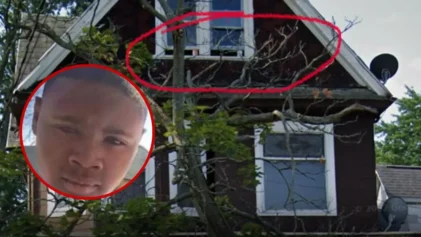A new report claims several dozen South African women were sterilized against their will.
In a document published in late February, The Commission for Gender Equality found at least 48 women were forcibly sterilized while seeking pregnancy-related health care. According to some women, health care workers threatened them to get them to sign consent forms, reported Reuters.

“In some instances, complainants were given the forms while they were in extreme labor pain and were told that they would not receive medical assistance until they had signed the forms,” the report stated. The report took five years to complete due to reluctance from victims and hostility from hospitals.
The sterilizations happened at 15 local hospitals and some of them are located in urban centers like Durban and Johannesburg. HIV-positive mothers were the main targets for overzealous medical professionals. South Africa has more than 7 million residents living with HIV/AIDS, the largest epidemic in the world, The Associated Press reports. The country also accounts for 15 percent of new infections.
“When I asked the nurse what the forms were for, the nurse responded by saying: ‘You HIV people don’t ask questions when you make babies. Why are you asking questions now? You must be closed up because you HIV people like making babies and it just annoys us,” one woman told the report’s authors.
HIV-positive mothers aren’t the only ones who have suffered. Bongekile Msibi, one of the women included in the report, is not HIV-positive. Msibi had a daughter via cesarean section in 2005 and her uterus was removed during the procedure. When she woke up with a large bandage across her abdomen, she assumed with was a result of the c-section. She didn’t find out she had been sterilized until she attempted to conceive 11 years later.
“I had been taking the contraceptive pill for that whole time since I had given birth and so it was not strange that I had not had my period. But I got engaged and wanted to have another baby, so I went to the doctor,” Msibi told the BBC.
“He examined me, sat me down, gave me a glass of water and told me I had no uterus.”
The revelation was devastating and Msibi’s relationship ended because of it.
When she approached the doctor who’d performed the hysterectomy he was not remorseful. Since she was a minor at the time of the procedure, Msibi was not legally allowed to sign the consent form, and her mother denied she had done so.
“He did not say sorry. He told me that he had sterilized me in order to save my life,” she said. “I still do not know what he was trying to save me from. There are no records at the hospital.”
The pervasiveness of this issue isn’t clear, according to CGE chair Tamara Mathebula, but she told Reuters she hopes “the recommendations of our investigation will open the lid to matters that are not yet known in full”.


